Recycled roofing versus virgin resin

By DaVinci Roofscapes.
Looking to reroof your home with recycled materials? Understand the recycling process to ensure you aren't compromising durability when going green.
On April 22, everyone’s attention turns to Earth Day. That’s a good time to think about our impact on the environment. However, if you’re looking for a roof on another of the 364 days of the year, you should also be considering the environment.
Think about this. Does your household recycle things like milk jugs and water bottles? If so, imagine them being reground and used in roofing tiles. That’s what oftentimes is used for recycled content in roofing.
Recycled resins are defined as materials that have been reclaimed and are being reused. Virgin resins went into making products like the original plastic milk containers or detergent bottles.
What’s on a roof
When used plastic containers are recycled, they are cleaned. This process of washing out the used bottles, jars or jugs reduces the mechanical properties of the resins. After cleaning, the containers are reground and made into small pellets.
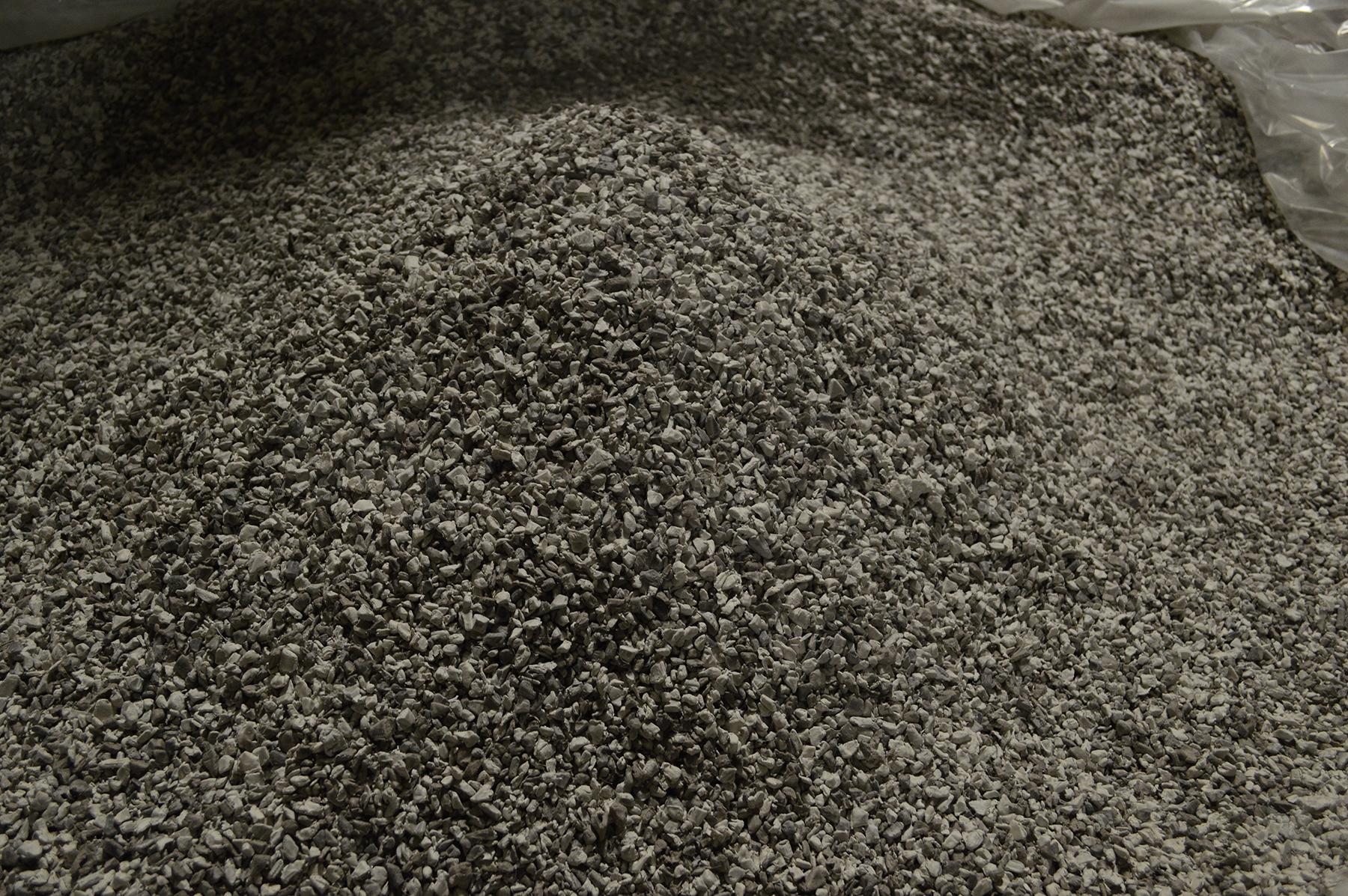 Each time resins are reused, they lose some of their original strength. Some companies use these recycled resin pellets to make roofing tiles.
Each time resins are reused, they lose some of their original strength. Some companies use these recycled resin pellets to make roofing tiles.
Here’s a way to think of it. Take a piece of packaging tape and cleanly pull it off a box, with the intent to use it again. The tape may work a second time, but it won’t have the same strength and durability as the first time. It’s the same way with resins.
Now, consider virgin resins. They are produced from a petrochemical feedstock (such as natural gas or crude oil), which has never been used or processed before. Roofing manufacturers using these virgin resins are using the purest form available. This means they’re in the strongest possible form.
Three steps versus six steps
The purer the resin in a composite roofing tile, the stronger the tile and longer the lifespan. With a virgin resin composite roofing tile, it moves from compounding to injection molding to the finished roofing tile. That’s three steps in the life cycle.
With a recycled resin roof tile, you also start out with the same first two steps, but the finished product may be a plastic soda bottle or milk jug. After it’s used, it gets recycled, cleaned and grinded down. Then it gets injection molded for the second time in its life. And then it gets made into a roofing tile. That’s a six-step process.
Why does it matter?
It comes down to strength. A composite roofing tile made of virgin resin is purer, so it’s stronger than a roof made of recycled content. This gives the roof the best chance for a long lifespan. This can be a positive impact on the environment because you only have to get a new roof once every 50 years versus every 20 or so years.
While dependable, a second life, reclaimed/recycled roof is made of second generation material, so it can be less durable. This recycled roofing material can include everything from hemp fibers to rubber to post-industrial plastics and more.
Mother Nature chimes in
Roofs are completely exposed to the ultraviolet rays of the sun. Over time, this means that heat and UV rays can break down the polymer chains in composite roofing. While many roofing manufacturers add in UV inhibitors and thermal stabilizers, resins can still become brittle over time.
When you start with a virgin resin composite roofing product, the tiles have the strongest chance to survive long-term. That’s why companies like DaVinci Roofscapes offer a Lifetime Limited Material Warranty.
When you look at recycled content roofing tiles, there’s a problem right from the start. These tiles began with polymer chains already broken down through the regrinding process. That puts the recycled resin at a disadvantage.
What’s best for your roof?
People have become accustomed to thinking that recycling and using recycled products mean they’re doing their part to save the environment. That’s a noble thought, but you need to know the facts.
Recycled plastics are wonderful for making many things — furniture, yoga mats, fencing and even carpeting. But roofing tiles don’t benefit from the same process. For the strongest, most dependable and longest-lasting roof, virgin resins should be highly considered.
See what DaVinci virgin resin roofing tiles can offer your home or building. Learn more about our manufacturing process, and explore DaVinci shake and slate options.
Have a question? AskARoofer.
Find your local roofing contractor in the RoofersCoffeeShop® Contractor Directory.

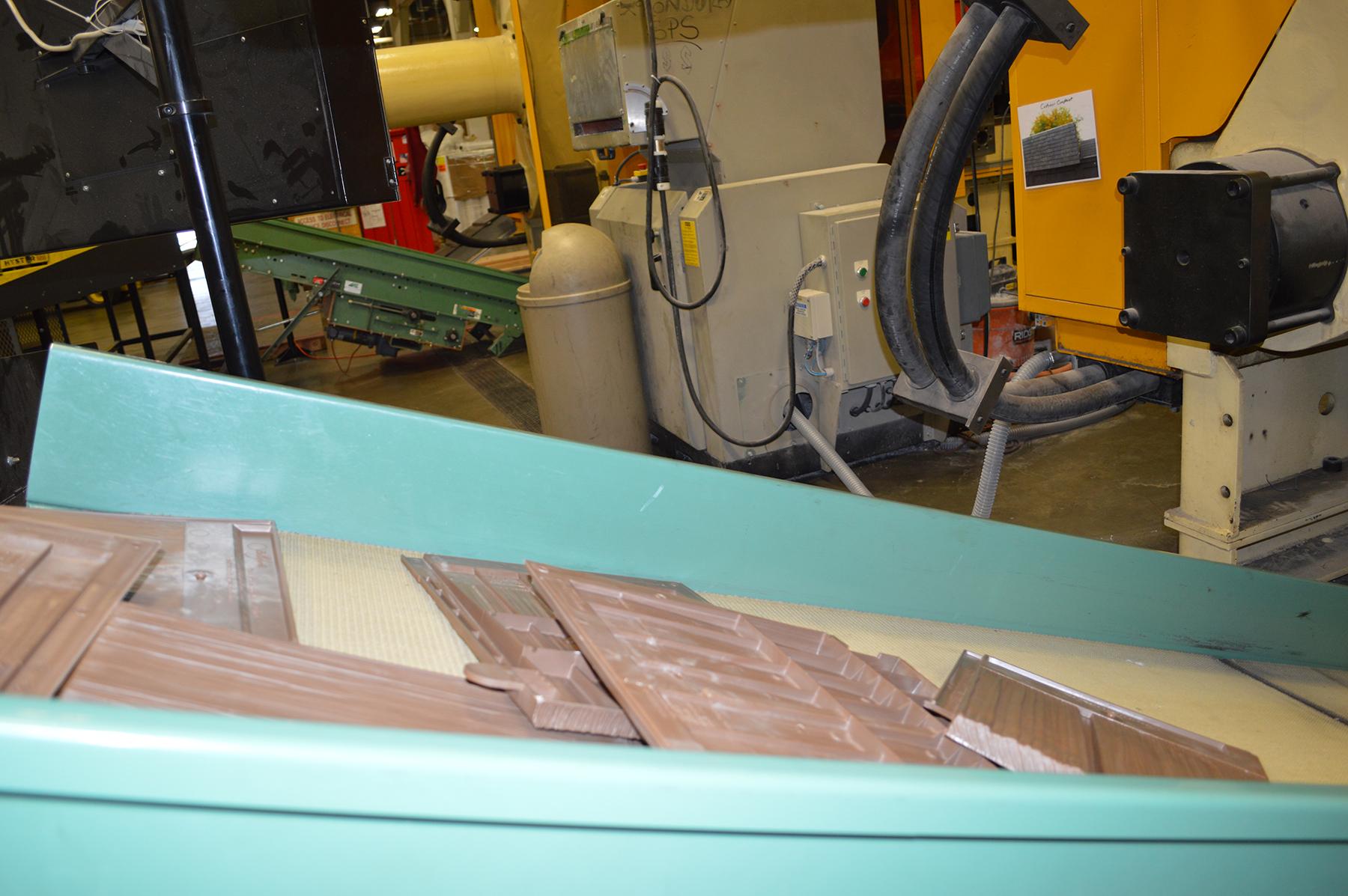
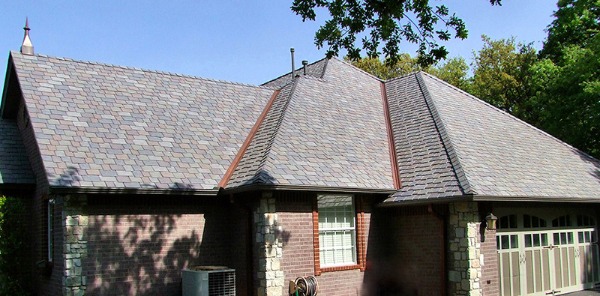
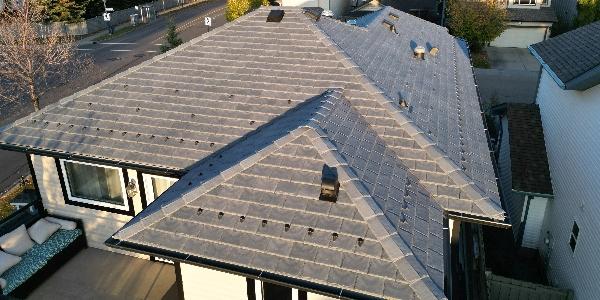
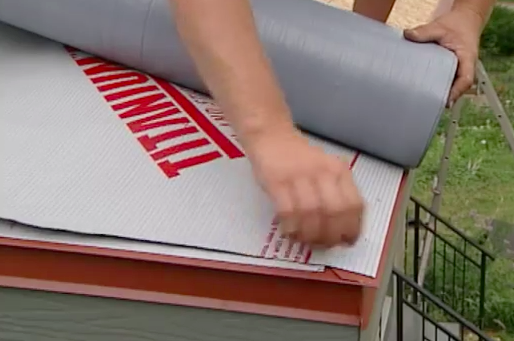

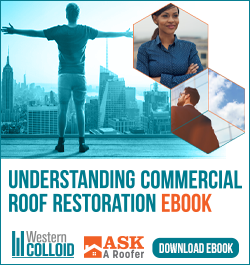




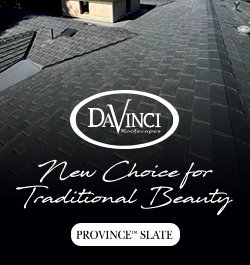
Comments
Leave a Reply
Have an account? Login to leave a comment!
Sign In